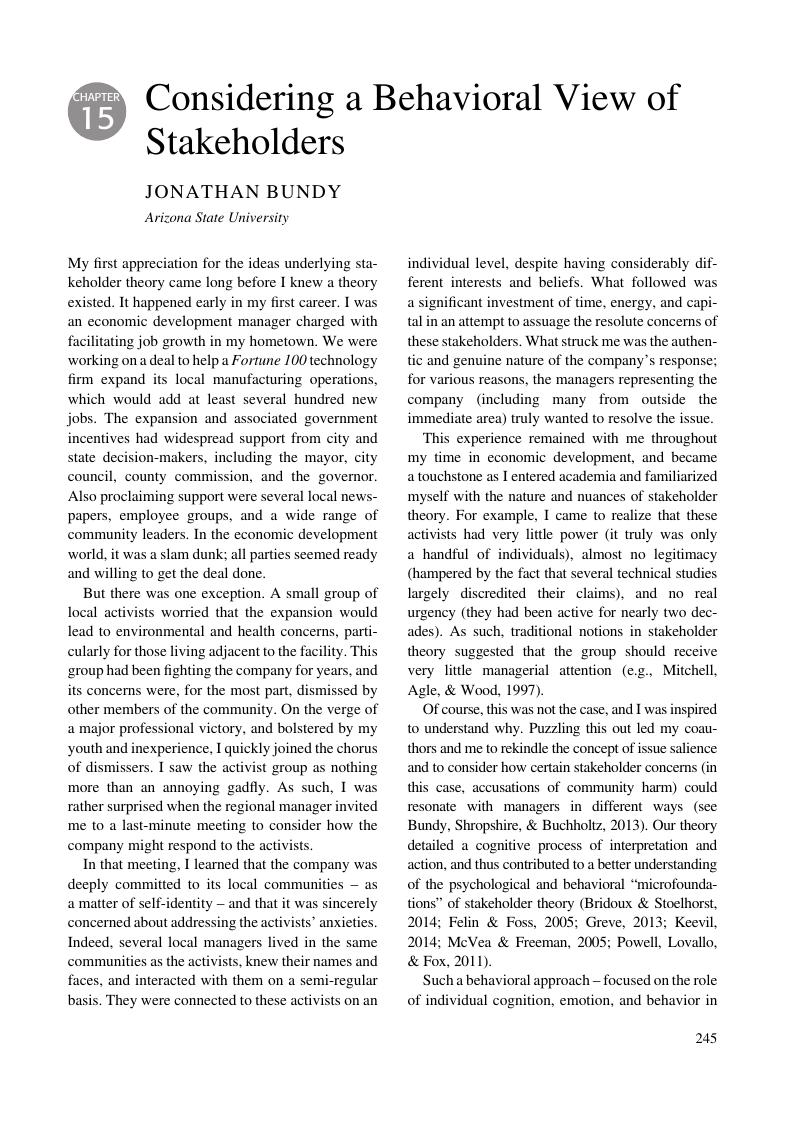Book contents
- The Cambridge Handbook of Stakeholder Theory
- The Cambridge Handbook of Stakeholder Theory
- Copyright page
- Contents
- Contributors
- Chapter Summaries
- Part I Theoretical Foundations of Stakeholder Theory
- Part II Stakeholder Theory and Society
- Part III Stakeholder Theory in the Business Disciplines
- Part IV Stakeholder Theory in Education and Practice
- Part V New Voices in Stakeholder Thinking
- Chapter 15 Considering a Behavioral View of Stakeholders
- Chapter 16 Behavioral Stakeholder Theory
- Chapter 17 Sketches of New and Future Research on Stakeholder Management
- Chapter 18 Contextual Richness at the Core of New Stakeholder Research
- Index
- References
Chapter 15 - Considering a Behavioral View of Stakeholders
from Part V - New Voices in Stakeholder Thinking
Published online by Cambridge University Press: 01 May 2019
- The Cambridge Handbook of Stakeholder Theory
- The Cambridge Handbook of Stakeholder Theory
- Copyright page
- Contents
- Contributors
- Chapter Summaries
- Part I Theoretical Foundations of Stakeholder Theory
- Part II Stakeholder Theory and Society
- Part III Stakeholder Theory in the Business Disciplines
- Part IV Stakeholder Theory in Education and Practice
- Part V New Voices in Stakeholder Thinking
- Chapter 15 Considering a Behavioral View of Stakeholders
- Chapter 16 Behavioral Stakeholder Theory
- Chapter 17 Sketches of New and Future Research on Stakeholder Management
- Chapter 18 Contextual Richness at the Core of New Stakeholder Research
- Index
- References
Summary

- Type
- Chapter
- Information
- The Cambridge Handbook of Stakeholder Theory , pp. 245 - 249Publisher: Cambridge University PressPrint publication year: 2019
References
- 4
- Cited by



